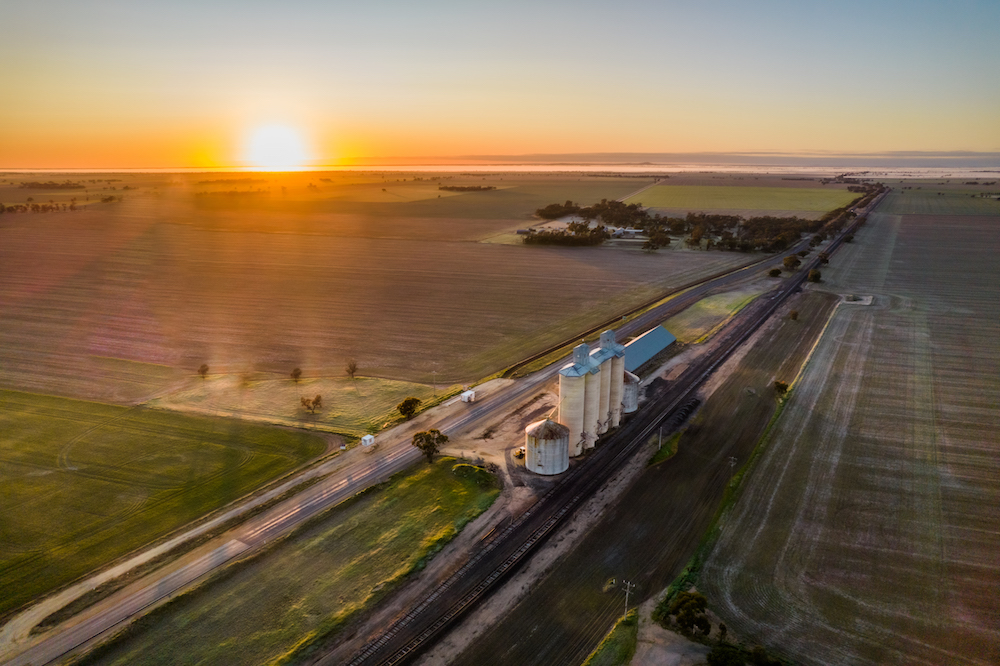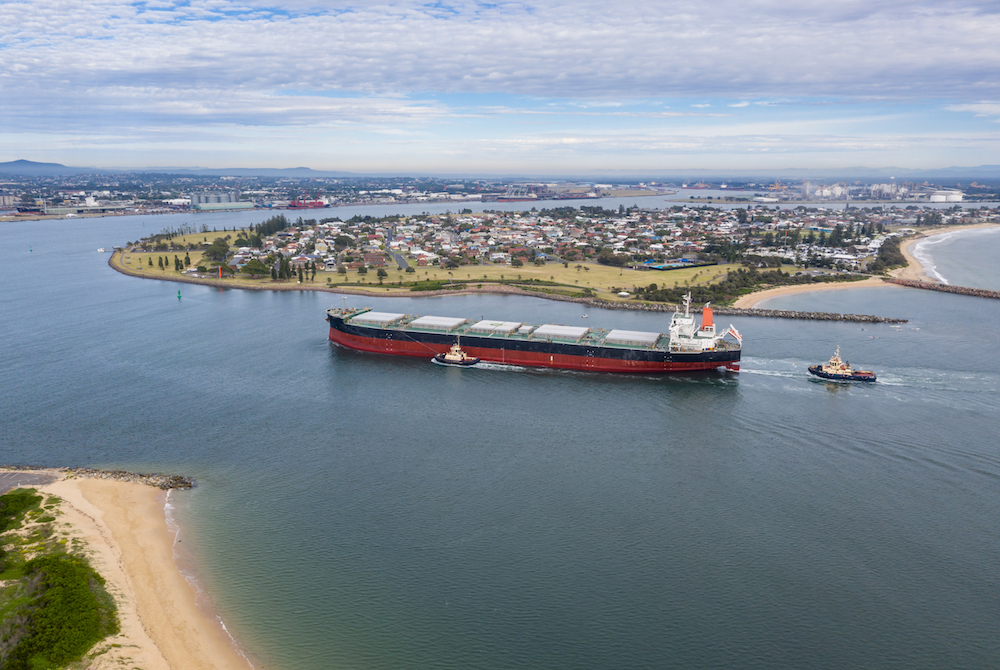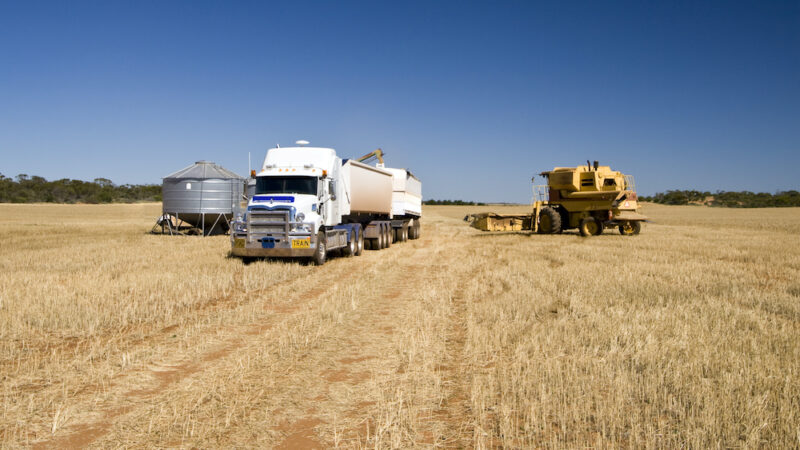Grain farmers have welcomed moves to get barley exports flowing back into China following a…
Competition not going with the grain

Australian grain farmers have produced an estimated 39.2 million tonnes (Mt) of wheat, 14.1Mt of barley and 8.3Mt of canola from the 2022-23 winter-crop harvest.

It�s a record amount of grain to sell, and farmers will need top prices to recoup a record investment into growing the crops. More than 80% of respondents to a recent Grain Producers Australia survey said last year�s cropping production costs were �significantly higher� compared with previous years.
NSW Farmers Grains Committee Chair, Justin Everitt, said growers are receiving higher prices for wheat compared to last year, but reports of farmers in other countries getting more bang for their buck continue to frustrate Australian farmers in 2023.
�We have been seeing international prices way above what we have been receiving. Canadian farmers were getting up to $150 per tonne more for canola last year,� Justin says.
�We have had some of the lowest prices in the world for the past two years for canola and wheat. Some of that is due to supply and demand and climatic factors, but there is definitely room for improvement in the efficiency of the supply chain in Australia.
�I know, for example, that they haul 15,000 tonne trains across Canada compared to the 5,000 tonne capacity trains here.�Expansion of container grain exports at the Port of Newcastle and the Inland Rail project are tipped to improve the shifting of grain to market for farmers in NSW, but Justin said more work is needed to increase transparency across the supply chain. �We need to work out where all the congestion is coming from in getting it from storage to port.�

Inquiries into the industry
NSW Farmers has asked Federal Treasurer Jim Chalmers to establish two inquiries to enable critical supply chain efficiency improvements and increased transparency for the grains sector. The first is an in-depth ACCC inquiry into the Australian grains industry to address concerns raised by growers about the underpricing of Australian grain when compared to those in other grain producing countries. NSW Farmers economist Brendan O�Keeffe said there are market failures potentially occurring across the supply chain due to a lack of competition, but a lack of data exists to fully diagnose the extent of inefficiencies.

�Monopolistic behaviour is potentially occurring due to large barriers to entry at the bulk handling stage, such as the high cost of rail access and significant capital investment required to set up facilities,� Brendan says. �Other issues leading to market inefficiencies include a lack of supply chain coordination, insufficient cost recovery of rail, and underinvestment in road infrastructure.� Brendan said the ACCC should use their powers to compel businesses across the supply chain to provide cost and revenue data which would then show markups and therefore evidence of monopoly pricing. �This could validate growers� concerns that they are receiving prices lower than they would in an efficient market setting.�

Check out our wheat port code
In addition to the ACCC Inquiry, NSW Farmers has requested that a review of the Wheat Port Code be commenced at the same time.
The Wheat Port Code regulates the conduct of port terminal service providers and seeks to ensure that exporters of bulk wheat have fair and transparent access to port terminal services.
In May 2018, the ACCC�s submission to the previous Port Code Review identified that exporters of all bulk grains should have fair and transparent access to port terminal services.
The ACCC also recommended that the code be extended to apply baseline regulatory access arrangements to vertically integrated upcountry storage and handling networks.
Recommendations like these from the first Code review have not been implemented, and the ACCC said in September last year that �the second Code review should commence as soon as practicable within the next 12 months�.
The ACCC has reported on bulk grain exports every year since the monopoly powers of the Australian Wheat Board (AWB) were removed in 2008.
The latest report showed a decline in the average number of exporters per port, while at the same time there is a growing number of new and smaller port facilities.
�While outside the remit of the Code, the ACCC notes that stakeholders continue to express concern around broader supply chains,� the ACCC said in a statement.
�The ACCC has reflected these concerns in its Bulk Grain Ports monitoring reports for several years. The ACCC considers that long-held stakeholder concerns, such as those in relation to broader supply chain issues, as well as emerging concerns should be considered as part of the second Code review.�
�To get to the heart of the matter, we believe any investigation should include the end-to-
Shona Gawel, CEO GrainGrowers
end grains supply chain nationally, originating at farm gate through to export and domestic channels.�

GrainGrowers call for investigation
Research that estimates grain farmers lost $2.6 billion in the value of their wheat in the 2021-22 marketing season has sprouted more calls for action on transparency in grain pricing.
GrainGrowers has requested a �in-depth investigation� from the Australian Government in response to its research paper highlighting large pricing anomalies between Australian and
international grain markets.
�At face value, in wheat alone, the value loss to grain growers is approximately $2.6 billion. The enormity of this loss is not sustainable over the longer term should the issue re-surface, as it seriously impacts overall farm viability.
�Growers have been raising the issue for some time, and the report provides quantitative evidence supporting the need for government to perform an in-depth investigation.�
GrainGrowers has outlined a range of options for the government to consider, including backing the request from NSW Farmers for an ACCC pricing inquiry. Other options are a Senate Inquiry and independent review or a departmental review by the Department of Agriculture, Fisheries and Forestry.
�Given the issue�s importance, we believe it is appropriate for the government to decide and commence what it considers to be the most appropriate course of action to address the identified concerns.�
Shona said that unless the drivers behind these anomalies are better understood and addressed, they will continue adversely impacting growers and the wider industry.
�To get to the heart of the matter, we believe any investigation should include the end-to-end grains supply chain nationally, originating at farm gate through to export and domestic channels,� she says.
�The investigation is not a finger-pointing exercise at any individual market participants, but rather a much-needed review in the interest of all players in the value chain.
�A thorough investigation will reveal if there are any supply chain bottlenecks and other barriers for trade participants. This approach, in turn, will help inform the government on future nation building supply chain investment, increasing the capacity of
industry to export larger grain crops in future.�








